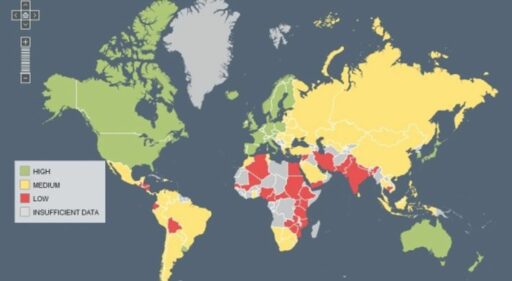In the realm of personal finance, understanding how various credit products affect your credit score is crucial. Snap Finance, known for its lease-to-own financing options, often prompts questions about its impact on consumers’ credit health. This article delves into the intricate relationship between using Snap Finance and the potential effects on your credit score, exploring the nuances of credit reporting, comparing it to traditional credit products, and offering strategies to leverage Snap Finance beneficially.
Key Takeaways
- Snap Finance’s ‘no credit check’ option does not mean it won’t affect your credit score; payment history may still be reported to credit bureaus.
- Initial credit checks by Snap Finance may have a minor, short-term impact on your credit score.
- Comparing Snap Finance to traditional credit products reveals different risk profiles and impacts on credit scores.
- Responsible use of Snap Finance, including timely payments and understanding terms, can potentially help build credit.
- Real-life consumer experiences with Snap Finance vary, highlighting the importance of personalized financial advice.
Understanding Snap Finance and Credit Reporting


What is Snap Finance?
Snap Finance is a financial service provider that specializes in lease-to-own financing options for consumers. It offers an alternative to traditional credit by providing a flexible way to purchase goods immediately and pay for them over time. Unlike conventional loans or credit cards, Snap Finance caters to individuals who may not have access to standard financing due to poor or no credit history.
Snap Finance operates on a simple premise:
- Apply for financing through a quick and easy process.
- Receive an instant decision on approval.
- Select the desired items from a partner retailer.
- Make small, manageable payments over time.
The appeal of Snap Finance lies in its accessibility and the opportunity it provides for consumers to acquire essential items without the need for upfront payment. However, it’s crucial to understand the terms and conditions associated with this type of financing to avoid any negative impact on one’s credit score.
How Snap Finance Interacts with Credit Bureaus
Snap Finance, while offering a lease-to-own financing option, does interact with credit bureaus in a manner that can influence your credit score. When you apply for Snap Finance, the company may perform a soft credit check which does not impact your credit score. However, this initial check is just the beginning of the relationship between your financial activities with Snap Finance and the credit reporting agencies.
- Snap Finance reports your payment history to credit bureaus.
- Late or missed payments can negatively affect your credit score.
- On-time payments can help build a positive credit history.
It’s essential to understand that the use of Snap Finance can have both positive and negative implications for your credit score, depending on your payment behavior.
Comparing Snap Finance to other no credit check financing options, such as Pay Per Week, is crucial for consumers. Pay Per Week offers up to
c2a3750, while Snap Finance provides up to
c2a32000 with the added flexibility of a lease-to-own agreement. This comparison highlights the importance of choosing a financing option based on the credit limit and payment flexibility that best suits your financial situation.
The Role of ‘No Credit Check’ Financing
The allure of ‘No Credit Check’ financing options like Snap Finance lies in their accessibility. Without the barrier of a traditional credit inquiry, these services can be a lifeline for consumers with poor or no credit history. However, it’s crucial to understand that ‘no credit check’ does not mean ‘no impact’ on your credit score.
While Snap Finance may not initially pull your credit report, their lease-to-own agreements often involve periodic reviews of payment history. These reviews can influence your credit score, especially if payments are missed or late. It’s a double-edged sword; timely payments can help build your credit, while delinquencies can harm it.
- Timely payments: Positive impact on credit score
- Missed payments: Negative impact on credit score
- Periodic reviews: Potential credit score adjustments
The key takeaway is that ‘no credit check’ financing is not invisible to credit bureaus. Responsible use can lead to positive credit outcomes, but it requires vigilance and commitment to on-time payments.
The Direct Effects of Snap Finance on Your Credit Score


Initial Credit Check and Its Implications
When considering Snap Finance for a purchase, it’s important to understand that an initial credit check is often part of the process. This credit check is designed to assess your financial responsibility and can have implications for your credit score. Each application for credit, including those for lease-to-own programs, typically results in a hard inquiry on your credit report. A hard inquiry may slightly lower your credit score temporarily.
While a single hard inquiry might only have a minor impact, multiple inquiries can accumulate and have a more significant effect on your credit score. It’s advisable to apply for credit only when necessary to minimize this impact.
Here’s a quick rundown of how initial credit checks can affect you:
- A hard inquiry may decrease your credit score by a few points.
- The effect of a hard inquiry diminishes over time.
- Multiple hard inquiries within a short period can be more damaging.
- Hard inquiries remain on your credit report for up to two years, but their impact lessens after the first year.
Payment History Reporting to Credit Bureaus
When it comes to Snap Finance and your credit score, one of the most critical factors is how your payment history is reported to credit bureaus. Snap Finance, like many other financial services, may report your payment activities to the major credit bureaus. This means that timely payments can positively influence your credit score, while late or missed payments can have a detrimental effect.
Maintaining a consistent record of on-time payments with Snap Finance can be a stepping stone towards building a stronger credit profile.
Understanding the frequency and manner in which Snap Finance reports to credit bureaus is essential. Here’s a simplified breakdown:
- Initial Report: When you first enter into a lease-to-own agreement with Snap Finance.
- Monthly Updates: Subsequent reports of your payment history on a monthly basis.
- Final Report: Once you’ve completed your agreement, reflecting the closure of the account.
It’s important to note that not all lease-to-own companies report to credit bureaus, so if building credit is a goal for you, ensure that Snap Finance’s reporting practices align with your objectives.
The Impact of Lease-to-Own Agreements on Credit
Lease-to-own agreements, offered by companies like Snap Finance, can have a nuanced impact on your credit score. When you enter into a lease-to-own contract, the activity may not initially appear on your credit report. However, if the company reports your payment history to credit bureaus, it can become a significant factor in your credit score calculation.
Lease-to-own agreements can be a double-edged sword. On-time payments can positively influence your credit history, while missed payments can lead to negative marks that may take years to resolve.
Understanding the specific terms of your lease-to-own agreement is crucial. Here’s a brief overview of potential credit impacts:
- On-time payments: May improve credit score if reported
- Missed or late payments: Can significantly damage credit score
- Total lease cost: Can affect debt-to-income ratio
- Early buyout: May reduce total interest paid and improve credit utilization
It’s important to note that not all lease-to-own companies report to credit bureaus. Before entering into an agreement, verify if and how your payment activity will be recorded and reflected in your credit report.
Comparing Snap Finance with Traditional Credit Products


Differences Between Snap Finance and Credit Cards
Snap Finance and credit cards offer distinct financial options to consumers, each with its own set of features and implications for credit scores. Credit cards are revolving lines of credit with set limits and the ability to make purchases up to that limit, pay down the balance, and then spend again. Snap Finance, on the other hand, provides lease-to-own agreements that allow customers to take possession of items immediately and pay for them over time.
While credit cards often require a credit check that can impact your credit score, Snap Finance advertises no credit check financing, which may appeal to those with lower credit scores or thin credit files. However, it’s important to note that Snap Finance may still report payment history to credit bureaus, which can affect your credit score.
- Credit cards typically come with various rewards and benefits, such as cashback, travel points, or introductory offers like 0% APR on purchases or balance transfers.
- Snap Finance offers the flexibility to acquire goods immediately, even for those who might not qualify for traditional credit products.
The choice between using Snap Finance or a credit card should be based on individual financial situations and the potential impact on one’s credit score.
How Snap Finance Stacks Up Against Personal Loans
When comparing Snap Finance to personal loans, it’s important to understand the distinct features and potential impacts on your credit score. Personal loans are typically installment-based credit products, which means they are borrowed in a lump sum and repaid over time with interest. Snap Finance, on the other hand, offers lease-to-own agreements that may not always follow the traditional credit model.
- Personal Loans:
- Fixed interest rates
- Regular monthly payments
- Direct impact on credit score through on-time or missed payments
- Snap Finance:
- Flexible payment options
- No traditional credit check for approval
- Payment history may be reported, affecting credit
While personal loans can provide a predictable repayment plan, Snap Finance offers flexibility that might be more suitable for those with variable income. However, this flexibility can also lead to less structured spending, which could potentially harm your credit if not managed properly. It’s crucial to consider how each option aligns with your financial habits and goals.
Lease-to-Own vs. Installment Loans: Credit Implications
When comparing lease-to-own agreements with installment loans, it’s crucial to understand their distinct credit implications. Lease-to-own options, like those offered by Snap Finance, may not always require a credit check, which can be appealing for those with lower credit scores. However, this convenience can come with higher overall costs due to potentially elevated interest rates and fees.
Installment loans, on the other hand, typically involve a credit check and a more traditional borrowing structure. They can contribute to a stronger credit history if managed responsibly, as regular, on-time payments are reported to credit bureaus. Here’s a quick comparison:
- Lease-to-Own: May not build credit initially; higher costs; flexible approval.
- Installment Loans: Builds credit with timely payments; lower interest rates; requires credit check.
While both financing options can serve immediate needs, installment loans are generally more favorable for long-term credit health. It’s important to weigh the immediate benefits against potential long-term credit score impact.
Remember, the choice between lease-to-own and installment loans should align with your financial goals and current credit situation. The lower your credit score, the more critical it is to consider how each option will affect your ability to secure future financing.
Strategies to Use Snap Finance Without Harming Your Credit


Best Practices for Managing Lease-to-Own Financing
When utilizing Snap Finance for lease-to-own financing, it’s crucial to approach the agreement with a strategy that safeguards your credit score. Ensure timely payments to avoid negative reporting to credit bureaus, which can be detrimental to your credit history. It’s also important to understand the terms of your lease agreement fully to prevent any surprises that could lead to missed payments or penalties.
- Review your lease agreement carefully to know your payment schedule and amounts.
- Set up automatic payments or reminders to ensure you never miss a due date.
- Keep track of your payments and check your credit report regularly to monitor any changes.
- Reach out to Snap Finance customer service if you encounter financial difficulties that may affect your payment ability.
By adhering to these best practices, you can enjoy the benefits of lease-to-own financing while maintaining or even improving your credit score.
Understanding the Fine Print: Avoiding Hidden Fees and Penalties
When considering Snap Finance or similar financial products, it’s crucial to understand the fine print to avoid unexpected costs. Hidden fees and penalties can quickly accumulate, turning an initially attractive offer into a costly mistake.
- Always review the terms and conditions thoroughly before signing any agreement.
- Look out for high fees that may be attached to seemingly low rates, as they can negate any savings.
- Be aware of early repayment charges that could penalize you for paying off your lease-to-own agreement ahead of schedule.
By paying close attention to the details, you can make informed decisions that align with your financial goals and prevent unnecessary expenses.
Remember, the allure of low interest rates should not overshadow the importance of evaluating all associated costs. A deal that requires a high upfront fee or has steep penalties for early repayment may not be the most cost-effective choice in the long run.
Building Credit with Snap Finance: Tips and Tricks
Using Snap Finance can be a strategic way to build your credit score if managed properly. Here are some tips and tricks to ensure that your lease-to-own financing experience contributes positively to your credit history:
- Make timely payments: This is the cornerstone of credit building. Consistent, on-time payments show financial responsibility and can improve your credit score.
- Monitor your credit report: Keep an eye on your credit report to ensure that your Snap Finance activity is being reported accurately.
- Stay below credit utilization limits: If Snap Finance reports to credit bureaus, ensure that your balance stays well below the credit limit to maintain a good credit utilization ratio.
- Communicate with Snap Finance: If you encounter financial difficulties, proactively communicate with Snap Finance to explore options that may prevent negative reporting.
By adhering to these practices, you can leverage Snap Finance as a tool to demonstrate your financial responsibility, potentially leading to better credit scores and broader financial opportunities in the future.
Real-Life Stories: The Impact of Snap Finance on Consumers’ Credit


Success Stories: Positive Credit Outcomes with Snap Finance
Many consumers have leveraged Snap Finance to not only acquire goods they need but also to improve their credit scores. Positive credit outcomes are often the result of responsible use of Snap Finance’s lease-to-own agreements. By making timely payments, customers have seen their creditworthiness rise, which opens the door to more favorable financing options in the future.
- Review and improve credit score before applying
- Provide accurate and complete application information
- Make consistent, on-time payments
- Monitor credit reports for errors and updates
The journey to better credit is not instantaneous, but with disciplined financial behavior, Snap Finance can be a stepping stone towards achieving a healthier credit profile.
Success with Snap Finance is not just anecdotal; it’s backed by the experiences of individuals who have used the service to their advantage. By adhering to the principles of good credit management, these customers have turned a financing option into a credit-building tool.
Cautionary Tales: When Snap Finance Leads to Credit Challenges
While Snap Finance can be a useful tool for those with limited credit options, it’s not without its pitfalls. Some consumers have found their credit scores negatively impacted due to misunderstandings or mismanagement of Snap Finance agreements. For instance, late payments or defaults on lease-to-own contracts can be reported to credit bureaus, leading to a decrease in credit scores.
It’s crucial to recognize that even ‘no credit check’ options like Snap Finance can have long-term credit implications if not handled responsibly.
Here are common issues that have led to credit challenges for some Snap Finance users:
- Misunderstanding the payment schedule and terms
- Underestimating the total cost of ownership with added fees
- Failing to communicate with Snap Finance about financial difficulties
- Neglecting the impact of high-interest rates over time
These issues underscore the importance of thoroughly reviewing the terms of any financial agreement and maintaining open communication with lenders to protect one’s credit health.
Expert Analysis: Insights from Financial Advisors
Financial advisors often emphasize the importance of understanding the terms and conditions associated with financial products like Snap Finance. Knowing the fine print can save consumers from unexpected pitfalls that may affect their credit scores. Advisors suggest that while Snap Finance can be a useful tool for those with limited credit options, it should be used judiciously.
- Educate yourself on the terms of the agreement
- Monitor your payment schedule closely
- Keep track of any fees or additional charges
It’s crucial to maintain a clear record of all transactions and ensure timely payments to avoid negative impacts on your credit score.
Advisors also highlight the potential benefits of using Snap Finance responsibly. Timely payments can contribute positively to one’s credit history, provided that Snap Finance reports to the credit bureaus. However, the absence of traditional credit checks does not mean that there is no risk; missed payments can still lead to collections, which would negatively affect credit scores.
Conclusion
In conclusion, understanding the impact of Snap Finance on your credit score is crucial for maintaining financial health. As we’ve explored, Snap Finance can influence your credit score depending on how responsibly you manage the credit provided. Timely payments can enhance your creditworthiness, while missed payments may lead to negative repercussions. It’s essential to consider the broader context of financial tools and their effects on credit outcomes, as discussed in related articles and studies. By staying informed and vigilant about credit management, you can navigate Snap Finance and other financial products to your advantage, ensuring a stable and prosperous financial future.
Frequently Asked Questions
Does Snap Finance perform a credit check before approving financing?
Snap Finance may perform a soft credit check that doesn’t affect your credit score when evaluating your application, but they advertise ‘no credit check’ financing which focuses on other factors.
Can using Snap Finance improve my credit score?
If Snap Finance reports your payment history to credit bureaus and you make timely payments, it can have a positive impact on your credit score.
Will late payments on a lease-to-own agreement with Snap Finance hurt my credit score?
If Snap Finance reports to credit bureaus, late payments can negatively affect your credit score, similar to other forms of credit.
How does Snap Finance differ from traditional credit cards in terms of credit reporting?
Unlike credit cards, Snap Finance offers lease-to-own agreements that may not always involve traditional credit reporting, depending on their policies.
Are there any hidden fees with Snap Finance that could indirectly impact my credit score?
Hidden fees can lead to higher costs and potential late payments if not managed properly, indirectly affecting your credit score. It’s important to understand all terms and conditions.
Can I use Snap Finance responsibly without damaging my credit?
Yes, by ensuring timely payments, understanding the agreement terms, and avoiding late fees, you can use Snap Finance without harming your credit.





